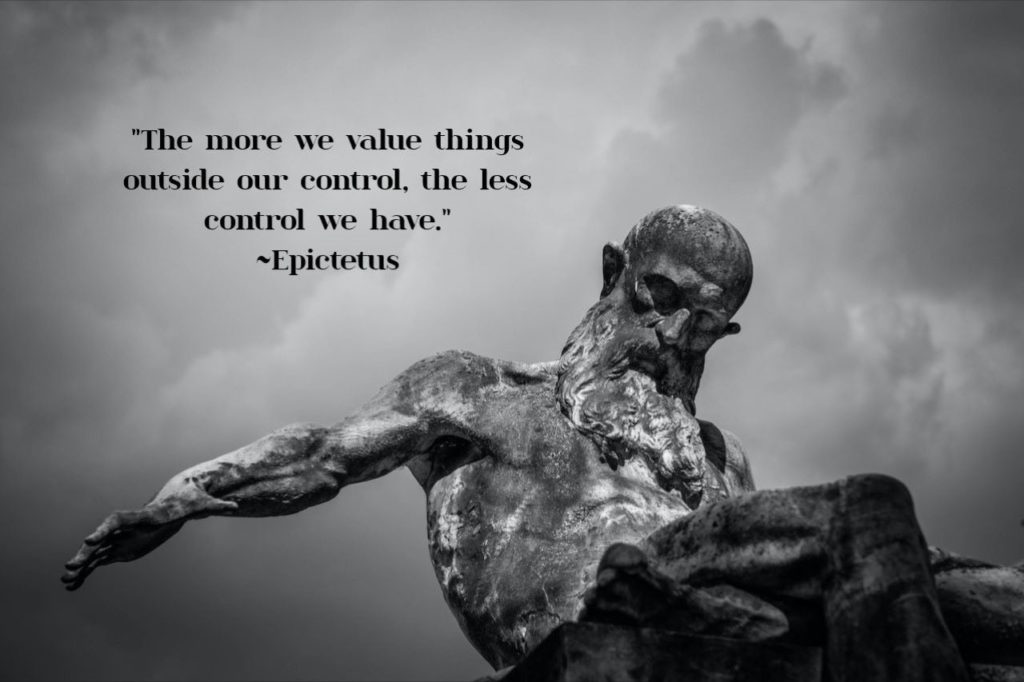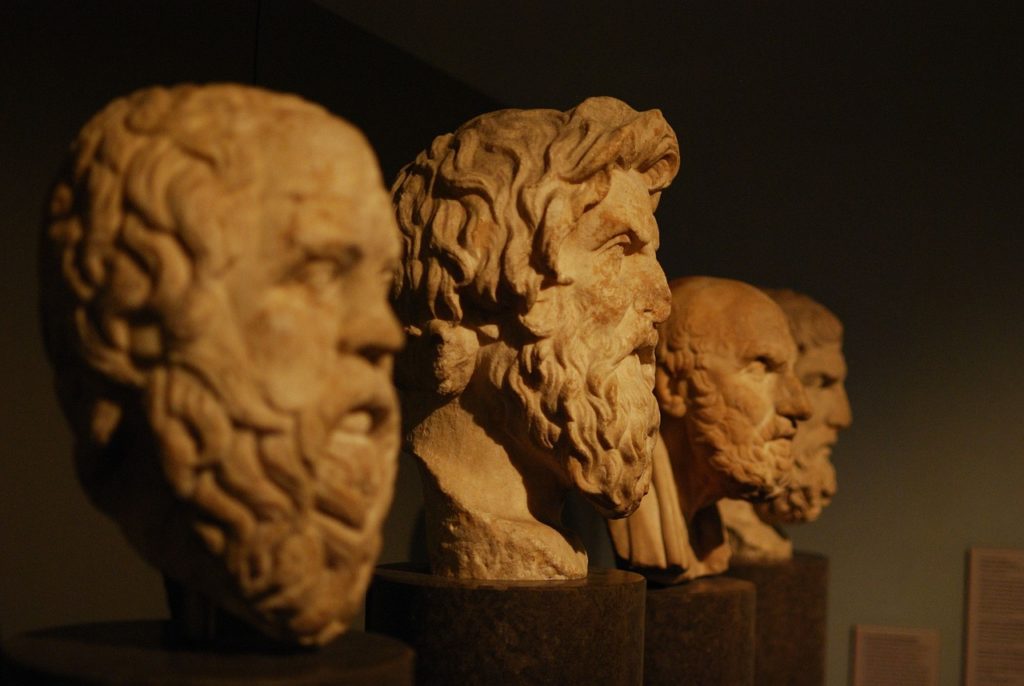I was very fortunate to end up at PSI in Chicago for help with addiciton. There were some outstanding counselors, and a lot of great people sharing the difficult first steps of recovery. Strong bonds were made, and there are a few friends I made who I stay in touch with on a weekly basis. One of those friends is a physician who introduced me to Stoicism. Lets call him Mutt. Although I took a lot of philosophy in college, I knew very little about Stoicism. Mutt first introduced me to “A Guide to the Good Life: The Ancient Art of Stoic Joy” by William B. Irvine, which had teachings from Epictetus, Marcus Aurelius, Seneca, and others. Thanks, Mutt!
I also highly recommend checking out Ryan Holiday’s website and books on applying Stoicism to every day life.
There are great lessons in Stoicism for everyone. Many of its concepts dovetail perfectly with principles of recovery. Here are a few:
1) Identify those things that are within your control, and those that are not. Make peace with things you cannot control and let them go. Focus your time and energy on improving those things you can control.
“Happiness and freedom begin with a clear understanding of one principle. Some things are within your control. And some things are not.” ~ Epictetus
If this feels familiar, maybe it’s reminding you of the serenity prayer? “May I have the serenity to accept the things I cannot change, the courage to change the things I can, and the wisdom to know the difference.”
2) Amor Fati: love fait. This follows directly from #1. Don’t just tolerate what happens to you. LOVE it. Learn from it. Embrace it as your path. Ryan Holiday’s best selling book “The Obstacle Is the Way” goes into great depth on this. I have tried to take this to heart in my life. I did not want or intend to become addicted to opioids. I did not want the terrible fallout due to what I did. But I cannot change it now. All I can do is look for what is good, what I can learn, and how I can better myself. I am happier and healthier now. Relationships with family and friends are in the forefront, and they are not diminished by having addiction weighing on my mind.
3. Difficult situations in life don’t cause pain and suffering. Our thoughts, beliefs and interpretation of these situations are what cause distress. Epictetus said: “people are not disturbed by things, but by the views they take of them”, and, “you are hurt the moment you believe yourself to be [hurt].” And Marcus Aurelius said: “You don’t have to turn this into something. It doesn’t have to upset you.”
4. “Don’t explain your philosophy. Embody it.” ~Epictetus. When substance abuse has been a problem in your life, you will not be well or whole until you deal with it. Talking about all the baggage that fueled it, how you’re dealing with it, etc. are all part of the process, and necessary. But ultimately: you’ve got to quit. You’ve got to live it.


